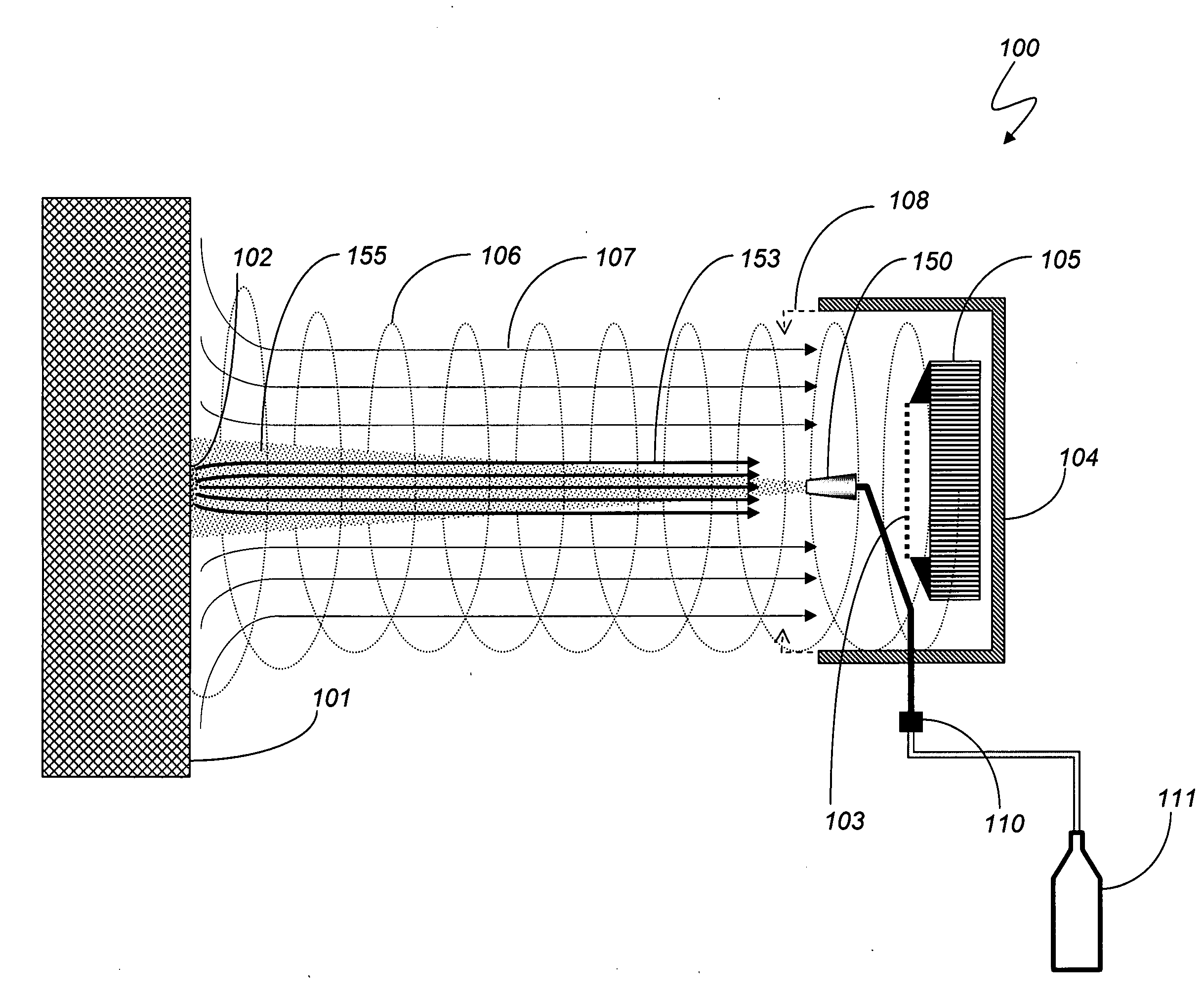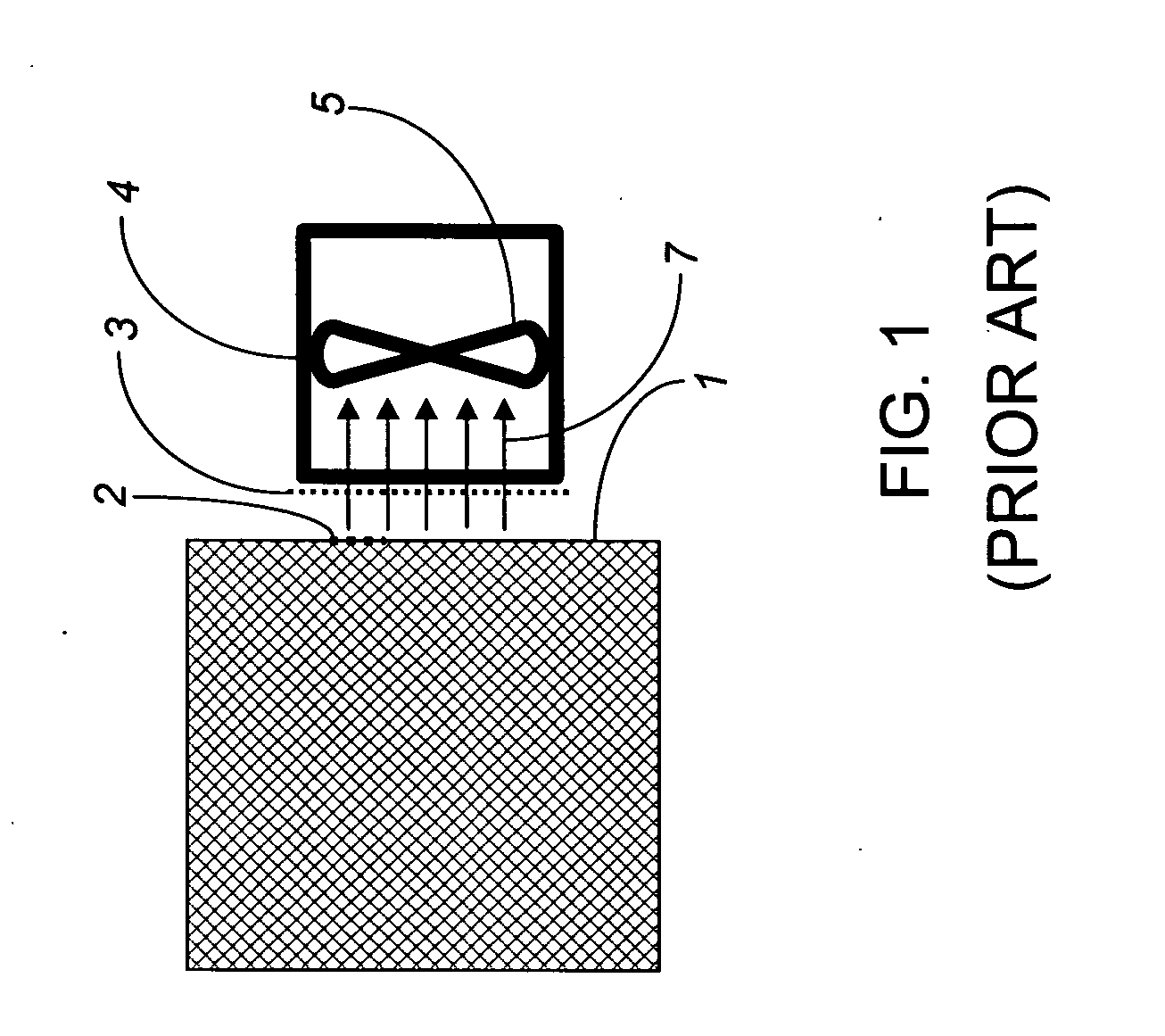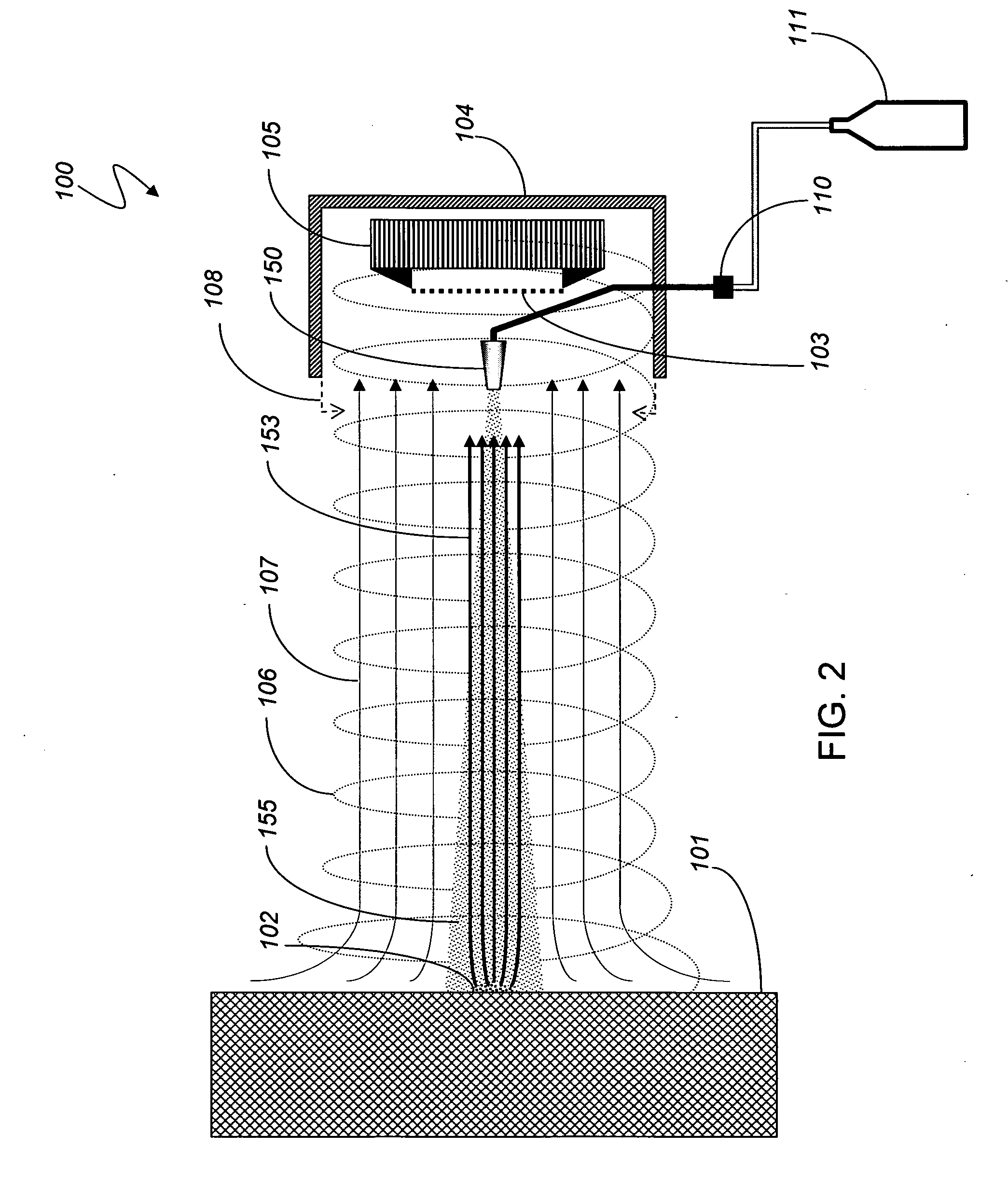Trace chemical sensing
- Summary
- Abstract
- Description
- Claims
- Application Information
AI Technical Summary
Benefits of technology
Problems solved by technology
Method used
Image
Examples
Embodiment Construction
[0033] A handheld vacuum with a trace particle collection filter used in conjunction with existing wiping systems is illustrated in FIG. 1 showing basic features of non-contact particle collection system based on the existing state-of-the-art. The sample collection device 4 is brought in very close proximity to a target surface 1 that may have a trace sample of target particles 2. The vacuum pump 5 of the sample collection device 4 is activated, creating an inward flow of air 7. Sample collecting media 3 is disposed between the target surface 1 and the vacuum pump 5 such that any trace particles may be collected on or in the sample collecting media 3. The sample collecting media 3 may be a filter, such as chemical filter paper. The sample collecting media 3 is then removed from the sample collection device 4 and transported to a separate detection instrument in order to determine if trace particles of the target substance were collected. The separation distance between the sample co...
PUM
 Login to View More
Login to View More Abstract
Description
Claims
Application Information
 Login to View More
Login to View More - R&D
- Intellectual Property
- Life Sciences
- Materials
- Tech Scout
- Unparalleled Data Quality
- Higher Quality Content
- 60% Fewer Hallucinations
Browse by: Latest US Patents, China's latest patents, Technical Efficacy Thesaurus, Application Domain, Technology Topic, Popular Technical Reports.
© 2025 PatSnap. All rights reserved.Legal|Privacy policy|Modern Slavery Act Transparency Statement|Sitemap|About US| Contact US: help@patsnap.com



